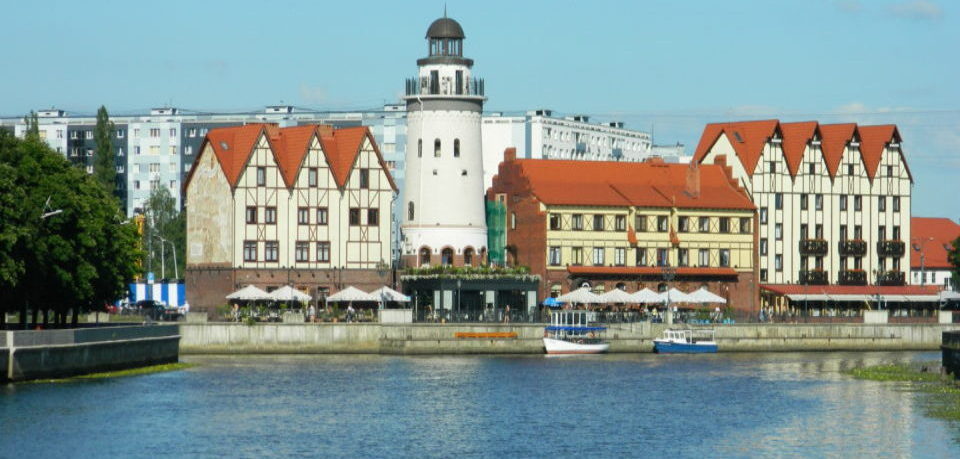A Russian Survivor of Mauthausen Concentration Camp
Published: 22 November 2020 ~ Life & Death in Mauthausen Concentration Camp
This summer we had the pleasure of meeting a very special lady in Kaliningrad, Zoya Ostin, the widow of a former Russian soldier, Vsevolod Ostin, who, in his youth, was incarcerated in the notorious Mauthausen Nazi concentration camp in Upper Austria. The young Russian soldier survived his ordeal and later wrote a highly detailed account of life and death within the camp, how he beat the odds and lived to tell the tale. My wife, Olga, has been busy translating his book, Rise Above Your Pain, into English.
During the Second World War, Vsevolod Ostin, a young Soviet soldier, had the grave misfortune to be interned in the notorious Mauthausen Nazi concentration camp in Upper Austria.
Whilst most of us in the West are familiar with the names of Auschwitz, Dachau and Belsen, the name Mauthausen may not be immediately recognisable, but Mauthausen was considered to be one of the Nazi’s most severe and brutal camps, so much so that it was known affectionately by the SS as the bone mill or bone grinder.
Life & Death in Mauthausen Concentration Camp
Mauthausen was the principal camp in an extensive complex of satellite camps operating throughout Austria and the southern regions of Germany. The inmates, mostly drawn from the Soviet and Polish intelligentsia, were used as slave labour for numerous German companies, both local and national, with the majority of prisoners working mainly in the nearby granite quarries, providing raw materials for the reconstruction of German towns and cities.
The regime in Mauthausen and the surrounding sub-camps was so relentlessly brutal that the average life expectancy was estimated to be 3 to 6 months at most. Vsevolod Ostin entered the camp in 1942 and miraculously managed to survive until 1945, when the camp was liberated by the United States Army.
Vsevolod Ostin wrote his account of life in Mauthausen in 1961 but not to the acclaim that he had hoped for. Publishing house after publishing house rejected the manuscript. Various reasons were given, but the main stumbling block seemed to be that the Soviet authorities considered it to be too international, too cosmopolitan, at a time when literary and historical accounts of the war had an urgent imperative to condemn Fascism as irredeemably evil.
Surviving Life & Death in Mauthausen
A man such as Ostin who had survived the horrors of Mauthausen was hardly likely to give up that easily, and he did not. But it would be 25 years from completion of the manuscript before he would see his work in print. Rise Above Your Pain was finally published in 1986, a year after perestroika.
By definition, Rise Above Your Pain is not an easy book to work on, neither is it bedtime reading! The subject matter is grim and grisly and in order to do it justice, to translate and edit it in the tone and spirit in which it was written, we have had to rise above our pain with each successive chapter.
This is because Ostin tells it as it was; he pulls no punches. He lays bare the worst excesses of human nature’s darker side, his book serving as a salutary reminder of how war unleashes the worst in us and how, in its consuming climate of hate, violence and death, the dregs of our societies, the malcontents, thugs and sadists, rise from the sediment into positions of power the consummate nature of which they could only dream of in times of peace and stability.
Nevertheless, between the cracks of inhumanity that the book so meticulously documents, reassuring glimpses of a human light shine through, and it is this as much as the depravity it delineates that makes Rise Above Your Pain a compelling lesson from history and a story that needs to be told.
Life & Death in Mauthausen Concentration Camp
Olga and I were approached to translate and edit Vsevolod Ostin’s book Rise Above Your Pain by Olga Tkachenko, Head of the Sobolev Children’s Library in Kaliningrad, on the recommendation of a mutual acquaintance, author and journalist Boris Nisnevich.
The translated and edited text is scheduled for completion in early 2021, with a view towards publishing an English language version later in that year.





Vsevolod Ostin, survivor of Mauthausen concentration camp, author of Rise Above Your Pain





An afternoon in the company of Zoya Ostin, widow of Vsevolod Ostin, survivor of Mauthausen concentration camp, author of Rise Above Your Pain. {Top middle picture, left to right: Olga Tkachenko, Head of the Sobolev Children’s Library, Kaliningrad; Zoya Ostin; and Olga Korosteleva-Hart.}

Copyright © 2018-2020 Mick Hart. All rights reserved.

